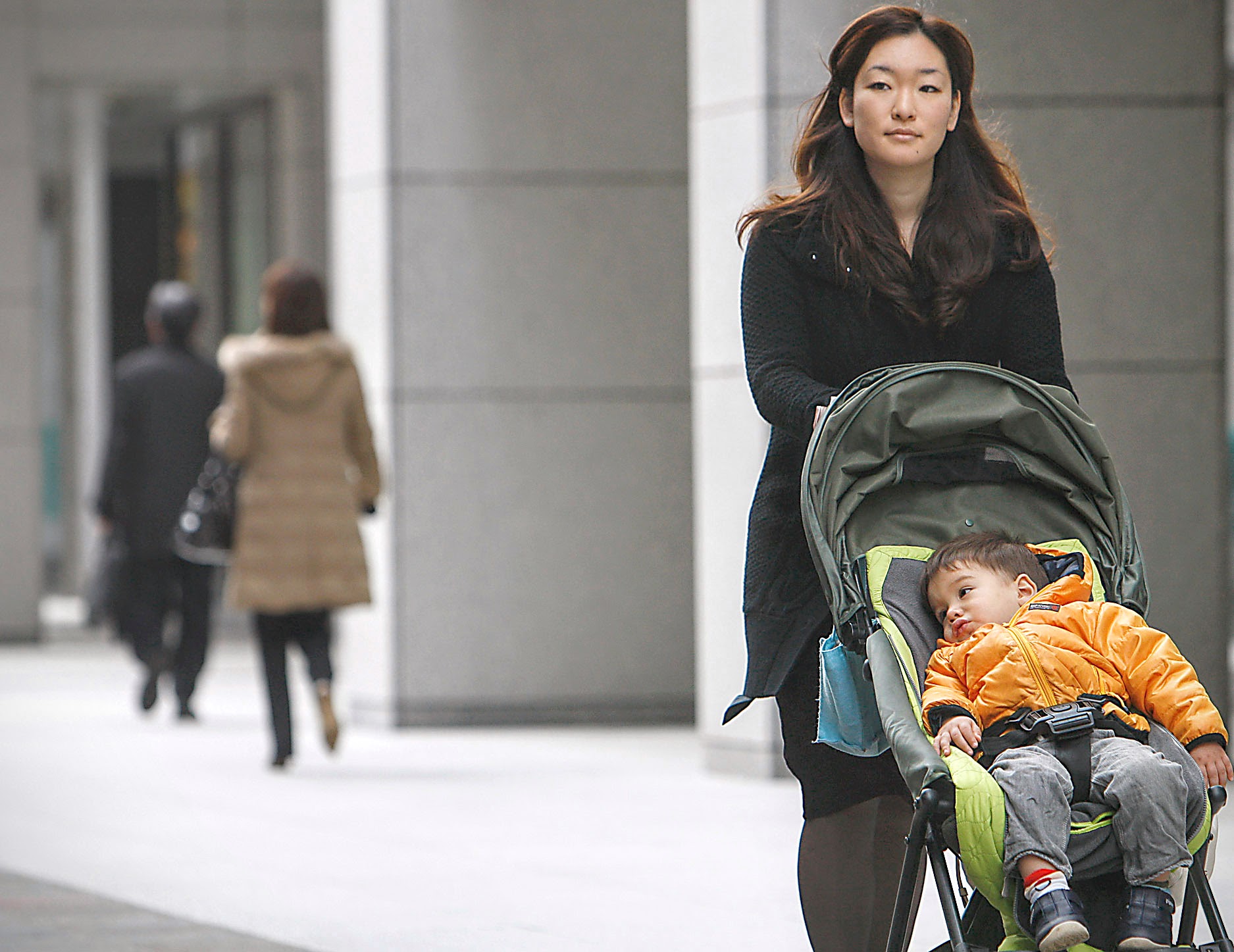Owing to various social, cultural and legal factors, single-parent households, in particular those headed by women, remain one of the poorest demographics in Japan. In recent years, the domestic media has been paying more attention to single mothers in light of the government's pledge to make women "shine," especially in the workplace.
The labor ministry is set to release the latest results of its five-year survey of families, but in 2011, the last time they released results, there were 1.238 million single mothers in Japan whose average income was ¥2.23 million, and that includes government benefits and child support if the woman happens to be divorced. That amount represents about half the median income in Japan. What's important to remember is that more than 80 percent of these women are employed, but the average income for single mothers is just ¥1.8 million a year. According to a Cabinet survey, 51 percent of single-mother households fall below the poverty line.
The problem appears to be obvious: These women have to raise families and make a living all by themselves, and some employers are not sympathetic to their special circumstances. However, with regional areas losing population and certain employment sectors seeing huge deficits in personnel, some groups are trying to attract single mothers with offers that take their special circumstances into consideration.



